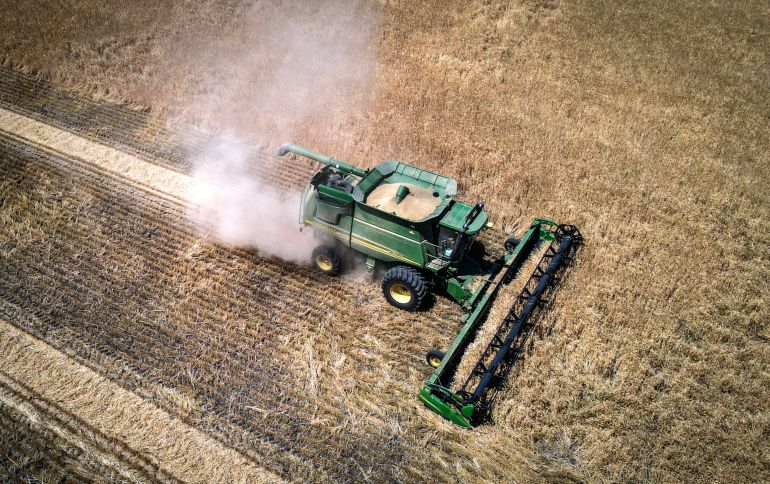Australia to launch WTO appeal over China’s barley tariffs
China imposed punitive duties totalling 80.5 percent on Australian barley in May as bilateral relations deteriorated.

Australia will launch a formal appeal to the World Trade Organization (WTO) on Wednesday seeking a review of China’s decision to impose hefty tariffs on imports of Australian barley, Minister for Trade Simon Birmingham said.
Acknowledging the appeal could take years to be resolved, Birmingham told reporters that Australia would also request formal consultations with China regarding dumping and other duties on Australian barley amid an increasingly bitter trade and diplomatic row between the two countries.
Keep reading
list of 4 itemsChina imposes additional duties on Australian wine
Party over? China trade rift threatens Australian winemakers
China customs checks delay Australia lobster exports: Trade group
As relations soured this year after Canberra proposed an independent investigation into the origins of the coronavirus pandemic, first reported in central China last year, Beijing in May imposed five years of anti-dumping and anti-subsidy duties totalling 80.5 percent on Australian barley – effectively stopping a billion-dollar trade in its tracks.
Australia denies the allegations it subsidises local barley production and Birmingham said it will seek formal intervention from the WTO.
“Australia has an incredibly strong case to mount in relation to defending the integrity and proprietary of our grain growers and barley producers,” Birmingham said.
The Chinese government embassy in Australian did not immediately respond to an email requesting comment, the Reuters news agency reported.

It is not clear how effective Australia’s decision to appeal to the WTO will be.
“The trouble with this barley-WTO item is that it will take a long time. It would normally take well over a year, possibly two years,” Peter McCawley, an economist at the Australian National University, told Al Jazeera.
“So in a way, the appeal to the WTO is more symbolic than actually having any immediate effect. It is really just Australia digging its heels in and sending yet another signal to China. On the Chinese side, I think they won’t care much. There’s no easy solution to this situation,” McCawley said.
Copper to wine
The WTO appeal threatens to further stoke bilateral tensions that have already seen China impose restrictions on a range of Australian commodities including copper, wine, timber and lobster, with diplomatic communication limited.

But Australia’s conservative government is under growing pressure from grain growers now forced to seek alternative markets – which often do not pay as much as China – for their products for the next five years while Beijing’s tariffs are enforced.
About 70 percent of Australian exports of the grain typically go to China, Australian data show.
The effective block on sales to China also comes as Australian barley production is expected to hit nearly 12 million tonnes this crop year, after rain revived some of the biggest growing regions following years of drought.
Coal controversy
Coal is also being affected. More than 50 vessels carrying Australian coal have been stranded off China after ports were verbally told in October not to offload such shipments, according to the Bloomberg news agency.
China’s National Development and Reform Commission on Saturday appeared to formalise those curbs after giving power plants approval to import coal without restrictions, except from Australia, under efforts to tame price gains, the state-backed newspaper Global Times reported.
Australia urged China to clarify the media reports, which it said would breach international trade rules if they were true.
On Tuesday, Australian Prime Minister Scott Morrison said any shift by China away from imports of high-quality Australian coal would be a “lose-lose” for the environment and their trading relationship.
Relations between China and Australia have been fraught since 2018 when Canberra barred Huawei Technologies Co. from building its 5G advanced mobile phone network on national security grounds and worsened this year following Morrison’s call for a coronavirus inquiry.
Beijing accuses Canberra of being a puppet of the US and of meddling in its internal affairs.
It is a marked reversal in the once cordial relationship that saw Australia host a state visit by President Xi Jinping in 2014 and sign a comprehensive free-trade agreement a year later.